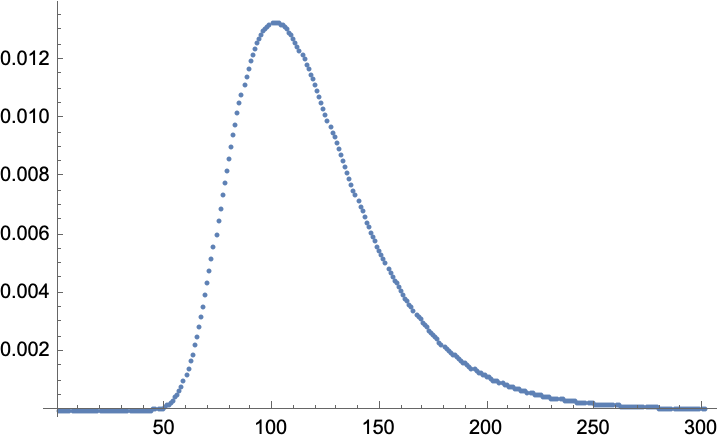Denote $p=mn$, then the mean $\bar{k}$ you seek equals $\bar{k}=\frac{p!}{(p-j)!}f_j(p)$, with $$f_j(p)=\sum _{k=1}^{\infty } \frac{k \mathcal{S}_k^{(j)} }{p^{k}}=\frac{F_j(p)}{\prod_{n=1}^j(p-n)^2}.$$ The numerator $F_j(p)$ is a polynomial in $p$ of degree $j$, the coefficients are given by the OEIS sequence A196837, for example: $$\{F_1(p),F_2(p),\ldots F_5(p)\}=\left\{p,2 p^2-3 p,3 p^3-12 p^2+11 p,4 p^4-30 p^3+70 p^2-50 p,5 p^5-60 p^4+255 p^3-450 p^2+274 p\right\}.$$
In response to a comment by Michael Engelhardt, I note that $$\frac{p!}{(p-j)!}\sum _{k=1}^{\infty } \frac{ \mathcal{S}_k^{(j)} }{p^k}=\frac{p}{p-j},$$ so a normalization factor $1-j/p$ is missing in the OP. The normalized probability function is therefore $$P_{j,p}(k)=\frac{(p-1)!}{(p-j-1)!}\frac{ \mathcal{S}_k^{(j)} }{p^k},$$ plotted here for $j=29$, $p=mn=30$.

